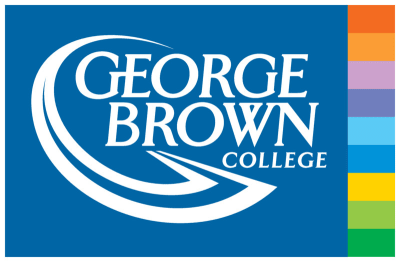
Diploma in Health Information Management
George Brown College

Key Information
Campus location
Toronto, Canada
Languages
English
Study format
On-Campus
Duration
2 years
Pace
Full time
Tuition fees
CAD 16,793 / per year **
Application deadline
Request info *
Earliest start date
Request info
* most programs fill quickly, so we strongly recommend that you apply at least six months in advance
** for international students. All fees are subject to change, without notice
Introduction
Leadership Claims
This program is accredited by the Canadian Health Information Management Association (CHIMA).
The Canadian College of Health Information Management is a national, not-for-profit corporation that sets the accreditation standards for educational institutions and certification standards for health information professionals in Canada.
The Canadian College of Health Information Management sets the accreditation standards for educational institutions offering health information programs in Canada.
Health Information Management is a two-year diploma program (fully accredited by the Canadian Health Information Management Association) focused on providing the skills and knowledge needed by health information practitioners. It prepares graduates to participate in the collection and organization of health information.
Curriculum content emphasizes:
- biomedical sciences
- health informatics
- health record systems
- medical classification systems and coding
- data collection
- statistical analysis and presentation
- health care legislation
Graduates are eligible to write the Canadian Health Information Management Association national certification examination. Please visit the Canadian Health Information Management Association website to learn more about this certification and the associated exam fee.
Note: Students in this program will be required to provide their own laptop computer for the duration of the program. Details regarding specifications will be provided.
Please note: While George Brown College encourages all members of our college community to get vaccinated, we only require students who will be living in our residence, The George, or who are varsity athletes to be vaccinated for Fall 2021. Similarly, many of our clinical placement partners strongly encourage students to be fully vaccinated prior to being placed with their agency, however, some have made this a requirement. As such, students who are not fully vaccinated against COVID-19 may not be able to complete the required clinical placement component of their program in the scheduled academic year. As decisions around vaccine requirements are continuously evolving, the Clinical Placement Office cannot guarantee a placement assignment in a facility that does not require the vaccine.
Your Field Education Options
Field placement plays an important role in this program by giving students the chance to apply what they've learned in the classroom to a real-world environment.
In semester 2, students will be placed at a health care facility for one week at the end of the semester. During that week, students will be exposed to various components of health data such as: the collection of, type of, and privacy issues related to data.
During the second year, field placement is integrated throughout semesters 3 & 4. Students will visit a partner office every Friday until the end of semester 4, at which point they will go on three-week block placement. During that time, students will be expected to complete a project related to health data to include an analysis of data and health-data-related issues.
The type of sites where students can expect to conduct their field experiences includes health care facilities, the Ontario Ministry of Health and Long-Term Care, health-related insurance companies, Ontario Hospital Association, community care access centers.
Admissions
Scholarships and Funding
Scholarships for international students at George Brown College are generally in-program awards based on students’ academic performance (and other criteria) at George Brown College after the beginning of the academic program.
Curriculum
Required Courses
| Semester 1 | Semester 2 |
|
|
| Semester 3 | Semester 4 |
|
|
**Based on the results of your placement test, you may be required to take COMM 1000 Introduction to College Communication before progressing to COMM 1007. COMM 1000 does not count as a course required for graduation, and you will be charged for this extra course.
Program Outcome
The graduate demonstrates the ability to:
- Keep current with relevant local, national and global health care and health information management issues, trends, technologies and standards to support health information management systems and processes and guide professional development.
- Assess personal health information from individual client visits for accuracy, completeness, and consistency using knowledge of biomedical sciences, medical diagnoses and interventions, causes of diseases, and medical terminology, abbreviations, and acronyms.
- Apply current, accurate codes and standards to relevant personal health information from individual client visits using health information, coding, classification, and abstracting systems proficiently.
- Comply with the legal obligations, as well as with the professional, ethical, and organizational standards that ensure privacy, security, and confidentiality in the access, retention, storage, and disposal of personal health information.
- Contribute to the development, implementation, and evaluation of health information management practices, policies, and processes to support client care, organizational goals, operations, and regulatory compliance.
- Participate in maintaining the completeness, accuracy, consistency, timeliness, and integrity of health information throughout the management of its lifecycle.
- Use knowledge of systems interoperability standards, database architecture, software versioning, classification and terminology mapping, data collection requirements, legal obligations, and the health information management lifecycle and apply fundamental project management principles and practices to support the procurement and implementation of health information management systems.
- Retrieve and release personal health information in response to legitimate requests, in accordance with statutory requirements, and within specified deadlines.
- Participate in the retrieval, analysis, and presentation of relevant health information to stakeholders to support organizational decision-making, epidemiological studies, and clinical research.
- Work professionally, ethically, and collaboratively with stakeholders and as a member of the interdisciplinary health care team, within a structured, regulated and evolving system of health care, to enhance the collection, distribution, use, security, and awareness of quality health information and its impact on client care.
- Use current and emerging technologies to support the management, analysis, and presentation of health information.
Career Opportunities
Your Career
Health Information Management practitioners are in demand as key members of the health care community. They work closely with many other health care professionals to contribute to the management of health information and quality care.
Employment opportunities exist within the public and private sectors with:
- Acute care hospitals
- Primary health care teams
- Ambulatory care facilities
- Workplace health and safety boards
- Health record consulting firms
- Canadian Institute of Health Information
- Specialized hospitals
- Community care centers
- Ministries of Health
- Computer companies
- Research centers
- Insurance companies
Health information management practitioners:
- Work with health care providers and stakeholders to transition from the paper health record to the electronic health record
- Develop, implement and maintain health information systems
- Protect patient information and promote confidentiality awareness
- Control the release of medico-legal information
- Evaluate standards of documentation according to established criteria
- Provide essential information for clinical research, quality improvement, utilization review, budgeting, and other administrative applications
Future Study Options
Health Information Management graduates who are certified with the Canadian Health Information Management Association may apply to Ryerson University to complete the Ted Rogers School of Management Bachelor of Health Administration (BHA).
Graduates of our program may also apply to the Bachelor of Applied Health Information Science (BA HIS) degree at Conestoga College. Graduates are eligible to enter the 2-year BA HIS bridging program.